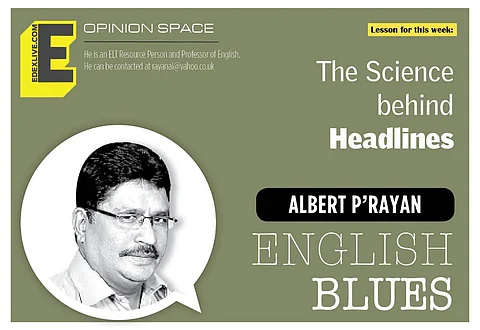

Recently, a reader emailed me this query: “Why are most headlines written in the present tense? Is it a standard practice everywhere?”
Look at these headlines:
World Cup winner Yashpal Sharma passes away aged 66 | Cricbuzz.com
India’s 1983 World Cup hero Yashpal Sharma dies of cardiac arrest | Times of India
’83 actor Ranvir Singh mourns the demise of Yashpal Sharma | Times of India
The above headlines are related to the death of Yashpal Sharma, former cricketer and one of the heroes in India’s World Cup triumph in 1983. The words in bold indicate that the headlines are in the present tense. Why are headlines written in the present simple tense? Does reporting past events in the present tense make sense? It is quite natural for learners of English to raise these questions.
The purpose of using the present tense to report past actions in news headlines is to give readers a sense of urgency and excitement. It indicates that the action is something is new and current. Such headlines entice the reader into reading the news stories. Yes, this is a standard practice that is followed everywhere.
Let’s look at other common rules followed when writing news headlines. In order to keep headlines short and sweet, certain standard rules are followed by editors.
1. Auxiliary verbs are left out in headlines. Look at these examples:
Third wave predictions treated casually like “weather forecast”: Government
Doctor arrested after spy cameras found in woman doctor’s bedroom, bath
We can see that the auxiliary verbs (is being, has been, have been, is) in the phrases is being treated and has been arrested have been omitted as they are considered unnecessary for headlines.
2. Infinitives (eg. to do, to launch, to inaugurate) are used for future events.
It is not necessary to use the future tense to talk about a future even in headlines. For example, instead of saying PM Modi will hold public meeting at BHU, we can write PM Modi to hold public meeting at BHU.
Biden to make ‘moral case’ for voting rights in major speech Tuesday | CNN
Biden to Travel to Philadelphia to Speak on Voting Rights | The New York Times
